Earthquakes, oil spills, volcanic eruptions, lost luggage, canceled or missed flights, losing your passport, getting mugged, having your belongings stolen, food poisoning, getting injured, dealing with political unrest…are just a few of the things that could possibly go wrong on a given trip. And while the chance of one or more happening to you is slim, it’s always better to be prepared (for those you can prepare for, anyways). Here are seven of the most common travel woes, how you avoid them, and what to do if one happens to you.
Natural Disasters
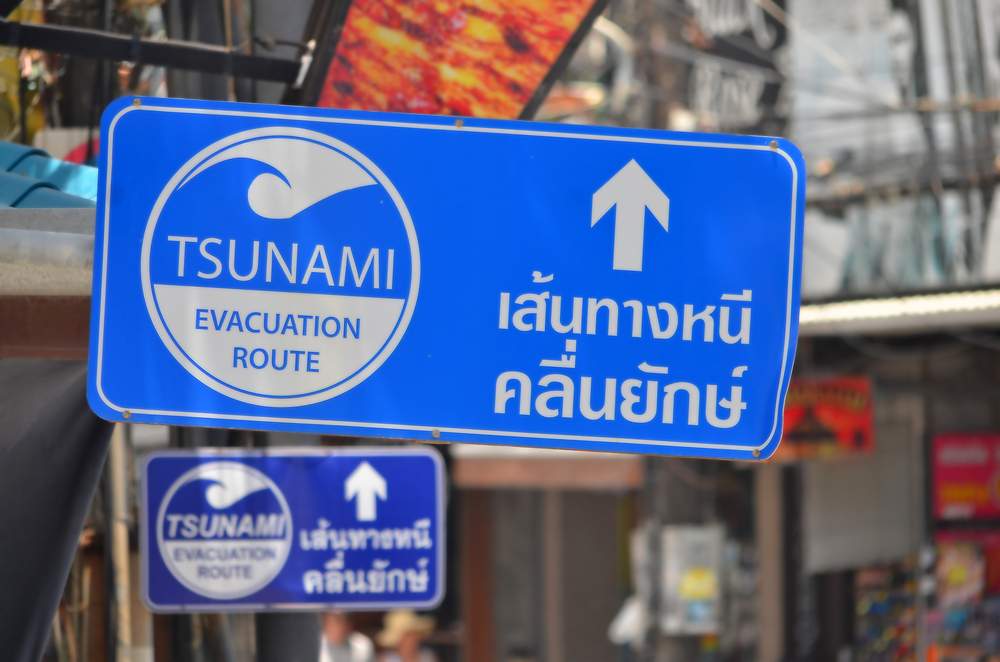
- If you’re planning on visiting a region that is known for natural disasters at a certain time of the year, try to avoid going at that time if at all possible.
- Purchasing travel insurance before your trip can help cover any financial losses you may incur because of a natural disaster, but make sure you read all the fine print of your policy.
- Register with the Smart Traveler Enrollment Program (STEP) to let your country know where and when you’ll be traveling. If from the US, you can do that here, and you can also call 202-501-4444, which is the emergency assistance number for Americans in foreign countries.
What to do in case of a natural disaster
- The first tip is to remain as calm and patient as possible. Be aware that nothing will be working correctly and you are not the only one affected, so panicking and getting impatient in the chaos is only going to make things worse.
- Make sure you get word out to your family and friends at home as soon as you can find working communication lines. They will be worried sick.
- Knowing what your airline’s policy is in regards to natural disasters is helpful. I know this is probably the last thing you are thinking of when purchasing airfare, but it can offer a peace of mind.
Political Unrest
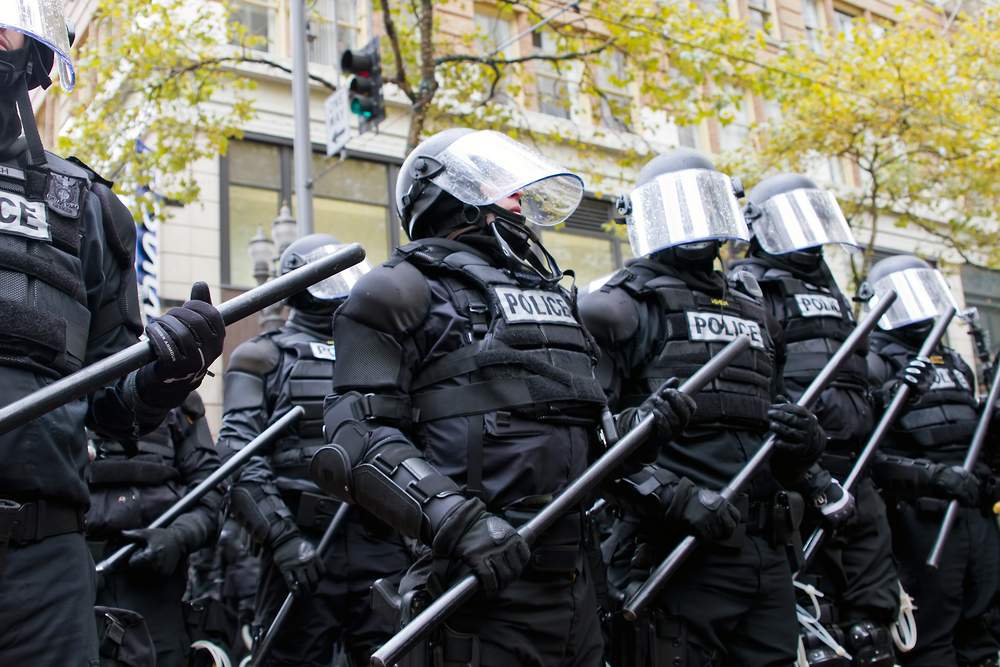
- Do your research. Many publications will tell you to read the State Department site for warnings. While it’s always good to at least peruse their warnings, keep in mind that they are usually overly cautious. If you believe everything you read there, you won’t be able to travel anywhere.
- Alternatively, check blogs and social media for travelers who are actually there. Who would you rather believe, someone who is at the scene of the crime or politicians in Washington? ‘Nuff said.
- Use common sense. If you have a trip planned and political unrest erupts out of nowhere, use common sense on whether or not to cancel the trip.
- Know your insurance policy. If you purchased travel insurance, be aware if it covers things like political unrest. Some policies do, some don’t.
What to do if you get caught up in political unrest
- Don’t get involved. You’re in a foreign country where you aren’t familiar with everyday customs and the depth of the political situation. You don’t want to put yourself in a situation where you can get injured or worse.
- Contact your embassy to see what they are doing to get their citizens out of the country. Sometimes you are just going to have to wait it out. If you feel as though you are in real danger, consider going straight to your embassy.
- Contact your airline to find out their policy. You may have to pay a change fee to leave earlier, but depending on the airline, a policy may be in place to change your flight at no additional fee. Travel insurance may cover the costs of getting you out of harm’s way as well.
Lost Luggage
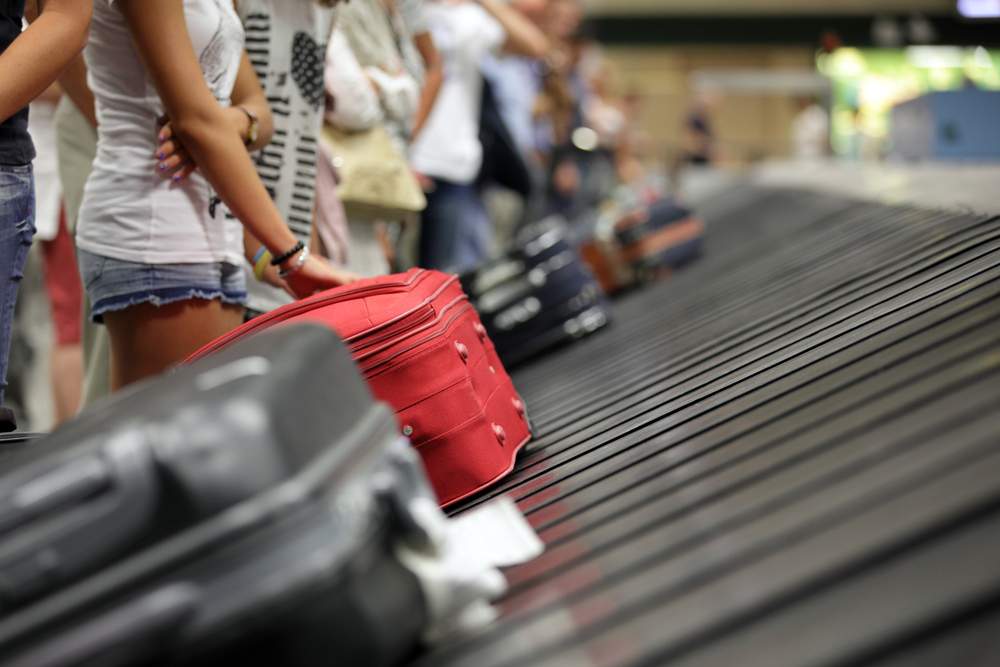
- Pack any important documents in your carry on. Passport, insurance information, and itineraries should all be carried on your person or in your carry-on bag(s).
- Make sure you have anything else of value, including your credit/debit cards and cash on you or in your carry on. This should be common sense, but you’d be amazed at people’s thought processes while packing. Expensive jewelry, glasses, medications, and contact lenses should be included here as well.
- Pack one extra outfit in your carry on. If you have the room, at least throw a pair of underwear and socks in your bag. If going from a hot to cold climate or vice versa, make sure you have the appropriate clothing in your carry on.
- Take an inventory, either written or mental (or take a picture), of your checked bag. If the airline loses your bag, they’re going to want to know what’s in it, specifically. Just another reason to pack light.
What to do in case of lost luggage
- Remain as calm as humanly possible, despite wanting to clobber someone over the head.
- Don’t leave the airport. Go up to the airline’s counter and submit a report and file a claim immediately. They may be able to find it quickly and easily, so just another reason to remain calm and be polite.
- Be persistent. You don’t have to be rude when doing this, but if you’re not receiving the service you desire, then speak up and use all avenues you can think of.
- Try to recoup your fees. As stupid as it may sound, not all airlines have to refund your baggage fees even if they lose it. This is ridiculous and frustrating, so make sure you know what the rules are regarding your airline.
Missing Your Flight
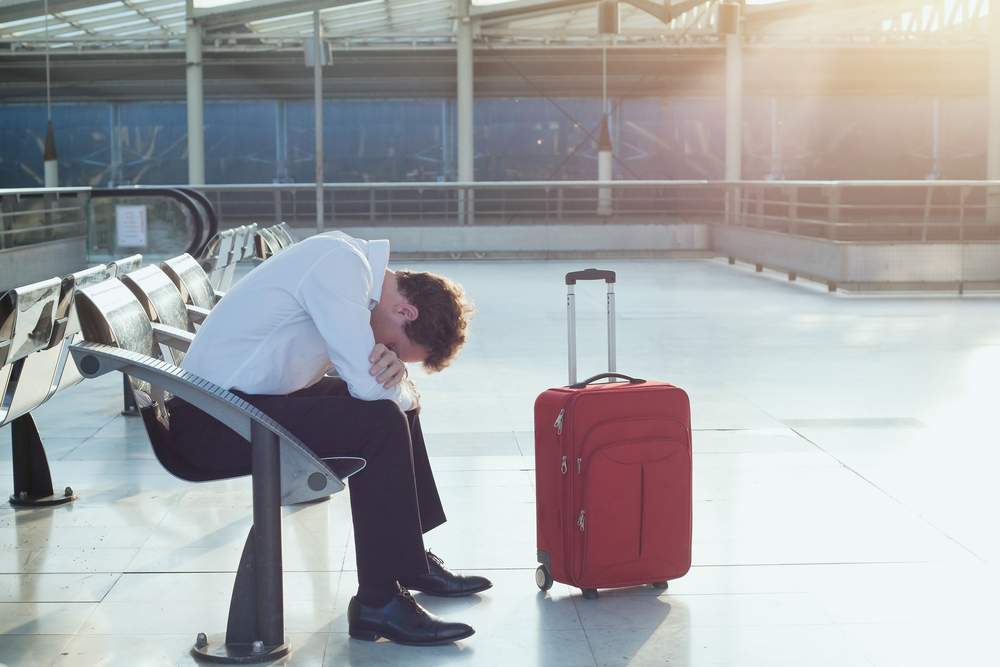
- Have a backup alarm. Whether it’s an alarm clock, an alarm on your phone, watch, computer, Ipod, or a wake-up call, make sure you have a back-up plan in place.
- Be smart when booking airfare. Giving yourself 20 minutes on a layover to catch your next plane is usually not enough, so make sure you give yourself enough time to catch that next flight.
- Leave early enough. There are two types of people-those who leave entirely too early to make sure they never miss a flight, and those who wait until the very last minute. You never know when an accident, traffic, weather, or any other unforeseen event can delay you. Leave with plenty of time to catch your flight. If you arrive way too early, drink a few extra beers or eat a Cinnabon.
What to do if you miss your flight
- If you miss a connection because of a delay and it’s with the same airline, getting on a new flight shouldn’t be terribly difficult. It’s their responsibility, and they should try to get you on a new flight as quickly as possible, sometimes with a few freebies (being nice and acting civil greatly enhances the ease with which this all happens).
- If you miss a flight for whatever other reason, traffic, oversleeping, getting wasted the night before, etc., whether you get charged a change fee is up to the airline employee in most cases. Most airlines do give their employees the power to waive the change fee, so how you act towards the counter person will have an effect on if you pay.
- If you are traveling during holidays and your flight is overbooked, this is your best chance to get some freebies. Airlines overbook, and sometimes someone gets screwed. If you are that person, take advantage and see what you can get. Like all these situations, remaining calm will only help your cause.
Being Robbed or Mugged
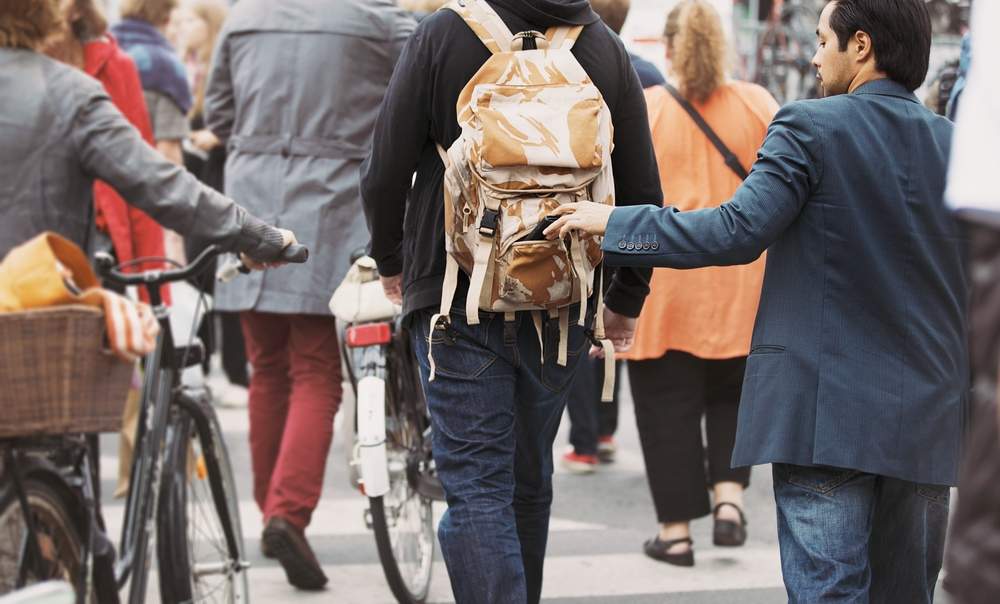
- Yes, money belts are uncomfortable and annoying at times, but they can also save your ass. Wear one.
- More on this below but be aware that if you carry your passport on you at all times, you are risking it getting stolen in an attack.
- Make copies of everything-passport and credit/debit cards in particular. They will be invaluable in case something happens. Scanning and emailing all these copies to yourself will also save you in case the copies get lost/stolen.
- Write down all the numbers of your credit/debit cards (some have different international numbers) and keep them in a safe, secure place.
- Don’t carry too many valuables with you. When heading out, bring a small amount of cash with you and don’t carry credit/debit cards unless you have to. If you need cash from an ATM, head to the nearest one then go back to your room to drop off your card and extra cash.
- Carry a decoy card. I’ve done this in the past where I carry an already used gift card that looks like a credit card. I will happily give this and some cash up in an attack.
- Don’t be flashy. Wearing a big camera around your neck or a nice ring, watch, or other jewelry is just asking for trouble.
- Alternatively, try not to stand out as a tourist (i.e., no I heart NY shirts, giant backpacks, and fanny packs-you are just asking for it)
- Ladies, I know you love your purses and handbags, but by carrying them you are risking them being snatched. If you must carry a bag or purse, make sure you have it secure at all times. Opt for something that goes across your body, put money in multiple interior pockets, keep the purse zipped at all times, and carry it on the arm away from the street (to deter anyone on a scooter from doing a dry-by snatching).
- While on buses and trains, keep your valuables on you and never put them underneath or on top of the bus. We always have our laptop, cameras, passports, money, and credit cards on us at all times when traveling overland. Some people even lock them to something near their seats.
- Always keep an eye on your belongings. Whether at a bus or train station, the airport, or checking into your hostel, know where your bags are at all times.
- Know where you’re going. There are dangerous areas in nearly every city. Know them and avoid them. If you turn a corner and don’t have a good feeling, turn around. Trust your instincts!
What to do if you are mugged or robbed
- Report it to the local police. They may not do anything, they may not seem to care, but suck it up, remain calm, and file a report. If you have travel insurance and plan on recovering costs from stolen goods, the first thing they’ll ask for is a police report.
- Call your insurance company if you have it and file a claim with them. You want to get the ball rolling as soon as possible.
- If your passport was stolen, you’ll want to go the nearest embassy as quickly as possible. It’s a frustrating process and it will suck, but you will get a new passport.
- Even if your passport is not stolen, a trip to the embassy may be necessary. They can assist you with emergency cash or help with canceling any credit cards that may have been taken.
Lost or Stolen Passport
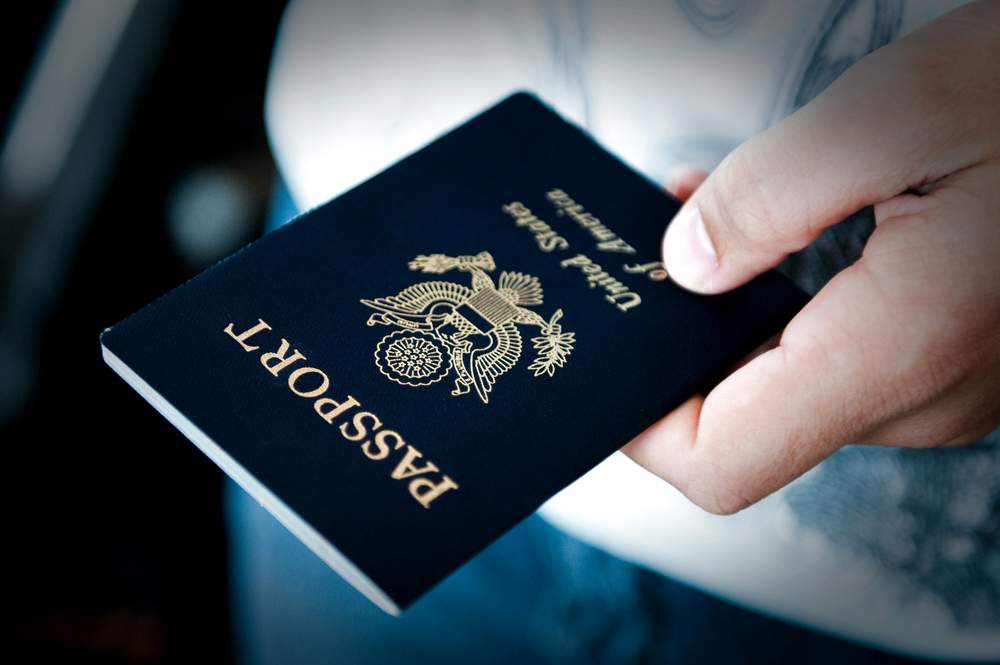
- Passport or no? Everyone has different opinions on this, so there’s no right or wrong answer. Some people carry their passport on them at all times, some leave it secure in their room. If you get mugged and are carrying it, it can get taken, so be aware. It can also be taken from your room, particularly if you are staying in a dorm, so there’s no failsafe.
- Consider carrying a copy of your passport instead of your actual passport. Again, personal preference, but some think the real passport is safer in the room than on your person.
- Regardless of what your preference is, make several color copies of your passport (and scan and email a copy to yourself) before leaving home. Put them in several different places in case a bag gets snatched or you happen to get mugged.
- Know where it is at all times. This is the most important thing you are carrying with you, so don’t be careless with it. Whatever you decide to do with your passport, know where it is at all times!
What to do if you lose your passport or if it is stolen
- Regardless of whether someone stole it or you lost it, find the nearest embassy and go to it.
- There are several steps you will have to complete to get a replacement passport. You will have to fill out a lot of paperwork and submit a police report if it was stolen.
- If you are flying out soon and need it in a timely manner, money talks. They can put a rush on it in most circumstances, for a price of course.
Illness or Injury

- Before flying, take some Airborne, load up on vitamins, get plenty of rest, and drink tons of water. Wash your hands often when flying and taking pubic transport, and avoid touching your face with dirty hands.
- Purchase some type of travel insurance to give you peace of mind before heading out on the road.
- Be smart in your activities. Tourists get injured every year doing stupid things, typically involving alcohol. I can’t count how many battered and bruised backpackers we saw in Laos who had been in Vang Vieng tubing and acting the fool.
- On the same note, if you’ve never driven a motorbike before, learning in a place like Saigon then driving like you’re playing Wii probably isn’t wise.
- Get Cipro from your doctor before leaving home. It is an antibiotic that can help with stomach ailments that crop up, particularly when eating street/market food. Most doctors have no problem prescribing Cipro before you travel.
- Get another generic antibiotic if your doctor will give it to you. I got two prescriptions of the Z-Pack before going on our RTW, an antibiotic that fights things like strep throat and other similar viruses. It’s only 7 pills, too, so it doesn’t take up too much room.
- Take care with street food. Of course you’ll want to sample the local food, but opt for street stalls where you can see the food cooked in front of you, and drink bottled water when recommended.
What to do if you do get sick or injured
- If it’s minor, head to a nearby pharmacy first. Many pharmacies around the world sell over the counter antibiotics and medicine that could cure you without having to mess with a doctor/hospital.
- If necessary, go to the doctor/hospital. Don’t put it off just because you think it will cost too much, even if you didn’t purchase supplementary travel insurance.
- All travel insurance policies are different, so know what yours does and doesn’t cover. Often it’s cheaper to just go the doctor or hospital in a foreign country and pay for it than have to mess with filing claims. If you get injured taking part in an extreme activity, know if your policy covers it.
- Going to the ER will not always break the bank. My wife and I both got sick in Prague and had to go the Foreigner ER at the hospital. We both got treated and received medicine, and it was cheaper to pay out of pocket than it would have been to pay our insurance co-pays to go the doctor at home. Yay US healthcare!
Chances are that none of these travel disasters will happen to you when on the road. If something does happen, it’s usually minor and simply using common sense can get you out of the situation unscathed. But if you do encounter one of these disasters when traveling, it’s always good to be prepared and to have done your homework.